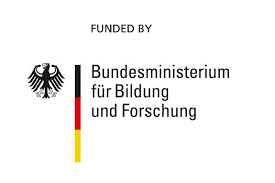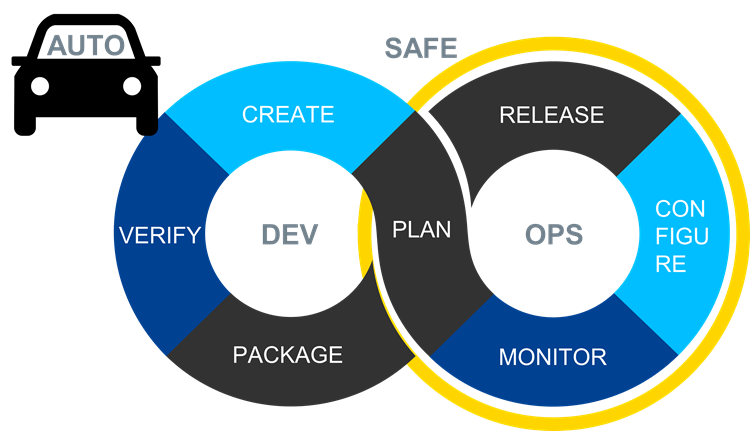AutoDevSafeOps: Integrated development and operation of safe automotive systems
Project description
Digitalization in the vehicle represents an important innovation driver with high economic significance for Germany as a business location. In the future, vehicles will rely on external information and data processing to perform the driving task, and this will include the regular software updates that already take place today. What is missing until today is a holistic approach that enables modular updates including the associated safeguarding processes and procedures across the system boundary between vehicle(s) and infrastructure or backend in a dynamically changing environment. The project will provide an important building block for modular updates of safety-critical driving functions - a key technology that transcends previous system boundaries and thus has high strategic importance for the competitiveness and innovation dynamics of Germany as a high-tech location.
The testing of the developed results takes place under the condition of industrial applicability and comprises essential components of the safety-oriented development process in a DevOps cycle: specifications, methods for the execution and the safeguarding of design steps, mechanisms of the computer platforms and the middleware, execution of update processes, safeguarding and monitoring at runtime of the systems, as well as the consistent integration of these design steps. In parallel, verification obligations in the overall process, in terms of relevant security norms and standards, are investigated and further developed.
The central idea of the MANNHEIM-AutoDevSafeOps project is to provide models, tools, and processes with which safety-critical automotive software can be developed quickly, reliably, and with due regard to certifiability.
AutoDevSafeOps is funded by the German Federal Ministry for Education and Research (BMBF) within the national funding program “Elektronik und Softwareentwicklungsmethoden für die Automobilität - MANNHEIM” (Electronics and software development methods for automobility), grant agreement No. 01IS22087.

TTTech Auto Germany GmbH coordinates the project. In technical terms, it focuses on testing the software to be implemented in CI/CD (Continuous Integration/Continuous Delivery) cycles, rather than testing all vehicle variants. To this end, TTTech develops one hybrid prototype and one physical prototype each, which will be combined into so-called "functional prototypes" to validate the software for over-the-air updates and the use of digital twins. TTTeh will implement two development environments, "pure simulation" and "in-use phase" (shadow mode), focusing on safety and security criteria.
Activities of TTTech Auto Germany GmbH in the AutoDevSafeOps project include:
- Development and implementation of the virtual ECU (vECU) in the cloud
- Investigation of safety and security mechanisms that should be considered when moving ECU functions to the cloud, such as execution platform failures, security reasoning for dynamic implementations, and evidence from the field to support security reasoning.
- Development and implementation of the methodology and software necessary to enable the validation environment.
- Development the monitoring service and collect the data.
- Enabling secure communication between the Edge and the Cloud.
- Enabling secure updates and upgrade of the service/application.
- Support predictive simulations and implementation of the use case.

- TTech Auto Germany GmbH 85055 Ingolstadt Deutschland - COORDINATOR
- Asvin GmbH 70565 Stuttgart Deutschland
- Deutsches Zentrum für Luft- und Raumfahrt e.V. 51147 Köln Deutschland
- Fraunhofer-Gesellschaft 80686 München Deutschland: Institut für Kognitive Systeme & Institut für experimentelles Software Engineering
- Hochschule Hamm-Lippstadt 59063 Hamm Deutschland
- Humboldt Universität zu Berlin 10099 Berlin Deutschland
- Karlsruher Institut für Technologie 76131 Karlsruhe Deutschland
- Merantix Labs GmbH 13355 Berlin Deutschland
- OSSENO Software GmbH 67663 Kaiserslautern Deutschland
- Robert Bosch GmbH 71272 Renningen Deutschland
- SGS-TÜV Saar GmbH 81379 München Deutschland
- SafeTRANS e.V 26121 Oldenburg Deutschland
- Technische Hochschule Ingolstadt 85049 Ingolstadt Deutschland
- Carl von Ossietzky Universität Oldenburg 26121 Oldenburg Deutschland
- Universität Stuttgart 70569 Stuttgart Deutschland
- Validas AG 80035 München Deutschland
- Inchron AG 9056 Erlangen Deutschland